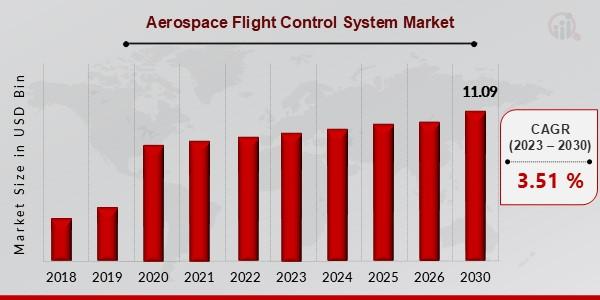The Aerospace Flight Control System Market plays a crucial role in ensuring aircraft stability, maneuverability, and safety. As aviation technology advances, the need for efficient, reliable, and sophisticated flight control systems continues to grow. This market analysis explores the various segments, key drivers, and regional trends influencing the industry, with projections extending to 2030.
Market Overview
Flight control systems are integral to the operation of modern aircraft. They manage various aspects of flight, including altitude, direction, and speed. These systems are categorized into several types based on platform, application, technology, components, and end-use. The increasing demand for advanced aviation technologies, along with the surge in commercial and military aviation activities, has significantly driven the growth of this market.
Segmentation Analysis
The Aerospace Flight Control System Market is segmented based on platform, application, technology, component, end-use, and region.
1. Platform
- Fixed-Wing Aircraft: This segment dominates the market due to the high demand for commercial airliners and military jets.
- Rotary-Wing Aircraft: Helicopters are increasingly utilized in rescue, military, and medical evacuation operations, contributing to steady growth.
2. Application
- Commercial Aviation: The rising global air travel demand and the expansion of low-cost carriers are driving this segment.
- Military Aviation: Defense investments in advanced aircraft with cutting-edge technologies are bolstering this segment.
- Business Aviation: The growing adoption of private jets by corporate clients and high-net-worth individuals is contributing to market growth.
3. Technology
- Fly-by-Wire (FBW): FBW systems replace traditional manual controls with electronic interfaces, offering enhanced precision and reduced weight.
- Power-by-Wire (PBW): PBW technology is gaining traction due to its energy efficiency and reliability.
- Hydro-Mechanical Systems: These systems remain relevant in certain aircraft due to their simplicity and robustness.
- Digital Fly-by-Wire: The integration of digital capabilities has paved the way for more sophisticated control systems, improving performance and safety.
4. Component
- Cockpit Controls: A vital interface for pilots, these controls are evolving to offer enhanced ergonomics and user-friendly designs.
- Actuators: These components are critical for executing control inputs and are seeing advancements in materials and efficiency.
- Flight Control Computers (Primary FCC and Secondary FCC): These are essential for managing complex computations, with primary FCCs focusing on main functions and secondary FCCs serving as backups.
- Standby Attitude Systems: These systems ensure safety and reliability during emergencies or malfunctions.
5. End-Use
- Line-Fit: Manufacturers are integrating advanced flight control systems directly into newly built aircraft.
- Retrofit: The upgrading of older aircraft with modern systems to meet regulatory standards and improve performance is a growing trend.
Regional Analysis
The Aerospace Flight Control System Market is geographically segmented into North America, Europe, Asia-Pacific, Middle East & Africa, and Latin America.
- North America: Home to leading aircraft manufacturers such as Boeing and Lockheed Martin, this region remains a dominant player. High military expenditure and the adoption of next-generation aviation technologies further bolster growth.
- Europe: The presence of Airbus and other aerospace giants drives the European market. Additionally, increasing defense budgets in countries like France and Germany contribute to growth.
- Asia-Pacific: Rapid economic growth, rising disposable incomes, and expanding defense budgets in countries such as China, India, and Japan are propelling the market in this region.
- Middle East & Africa: Increasing investments in aviation infrastructure and military modernization programs are expected to fuel growth.
- Latin America: The market here is driven by the expansion of low-cost carriers and the modernization of existing fleets.
Key Market Drivers
- Advancements in Aviation Technology
Emerging technologies like Artificial Intelligence (AI), Internet of Things (IoT), and advanced materials are revolutionizing flight control systems, making them more efficient and reliable. - Surge in Air Travel
Increasing global passenger traffic and the demand for fuel-efficient, long-haul aircraft are significant contributors. - Military Modernization Programs
Governments worldwide are investing in advanced combat and surveillance aircraft equipped with state-of-the-art flight control systems. - Focus on Sustainability
With the push for greener aviation, flight control systems are being designed to optimize fuel efficiency and reduce emissions. - Retrofit Demand
The need to modernize aging aircraft fleets, particularly in developing regions, is driving the retrofit segment.
Challenges
- High Development Costs: The development of cutting-edge flight control systems involves significant R&D investments.
- Stringent Regulatory Requirements: Compliance with aviation safety standards poses challenges for manufacturers.
Future Outlook
The Aerospace Flight Control System Market is poised for robust growth, driven by technological advancements, increasing air traffic, and defense modernization. The integration of digital and autonomous technologies is expected to transform the industry landscape by 2030.
North America and Europe will likely maintain their dominance due to their established aerospace industries, while Asia-Pacific will emerge as a lucrative market owing to its expanding aviation sector.
Manufacturers are focusing on innovations, strategic partnerships, and expanding their product portfolios to meet the rising demand for advanced flight control systems.
Conclusion
The Aerospace Flight Control System Market is a dynamic and essential component of the global aviation industry. With advancements in technology and increasing demand across commercial, military, and business aviation, the market is set to witness significant growth by 2030. Stakeholders, including manufacturers, airlines, and governments, must collaborate to overcome challenges and capitalize on emerging opportunities in this evolving market.
About US
Market Research Future (MRFR) is a global market research company that takes pride in its services, offering a complete and accurate analysis about diverse markets and consumers worldwide. Market Research Future has the distinguished objective of providing the optimal quality research and granular research to clients. Our market research studies by products, services, technologies, applications, end users, and market players for global, regional, and country level market segments, enable our clients to see more, know more, and do more, which help answer your most important questions.
Contact US
Market Research Future (part of Wantstats Research and Media Private Limited),
99 Hudson Street,5Th Floor New York 10013, United States of America
Sales: +1 628 258 0071 (US) +44 2035 002 764 (UK)

